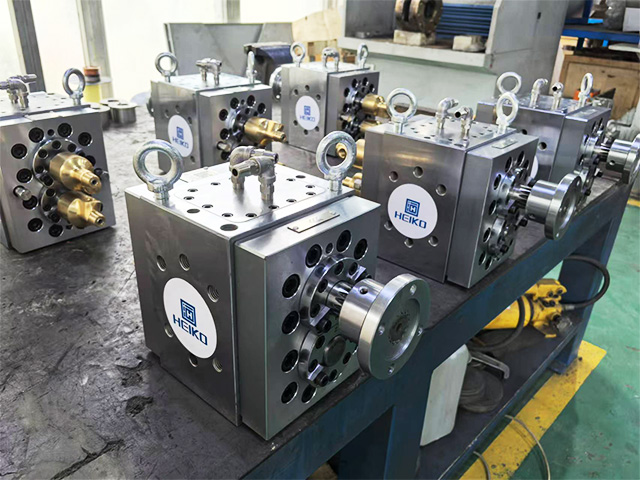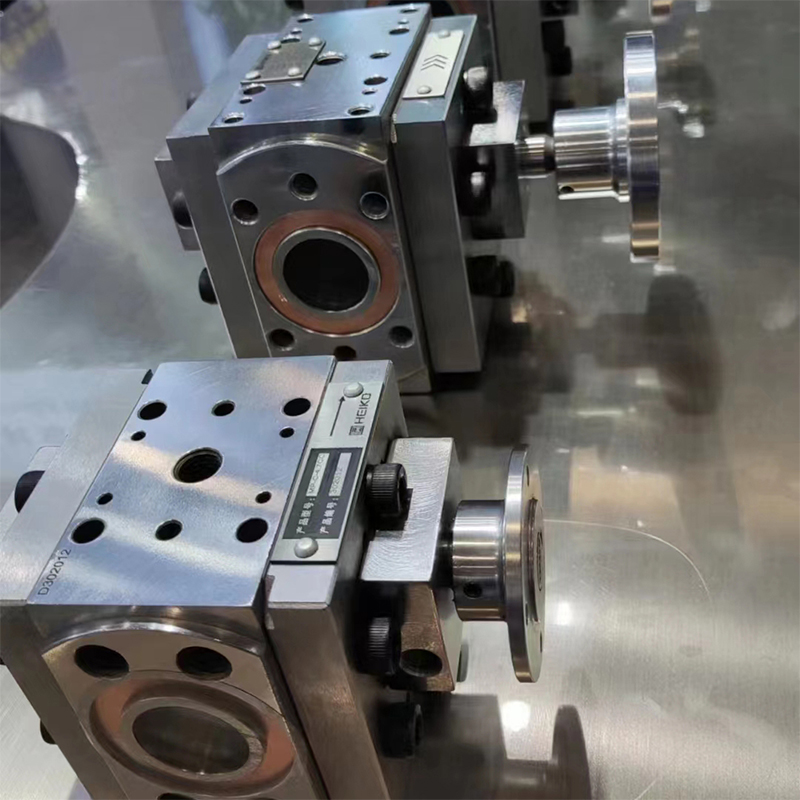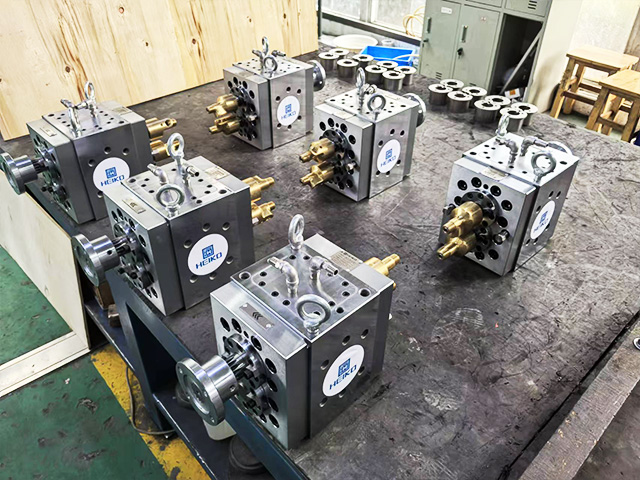Role and Features of Batt Melt Pumps for Thermoplastic Extrusion
In thermoplastic extrusion processes, melt pumps are critical equipment installed between the extruder and the die. Their core function is to provide stable melt pressure and flow control through precise mechanical transmission. Below is a detailed analysis of their roles and features:
I. Primary Functions
Stable Extrusion Pressure and Flow
Traditional screw extruders rely on screw speed for pressure, which is susceptible to material fluctuations and temperature changes, causing instability. Melt pumps use meshing gears or screws to deliver melt at a constant displacement, significantly reducing pressure fluctuations. Ideal for high-precision products (e.g., films, optical fibers, medical tubing).
Enhanced Extrusion Efficiency and Output
Melt pumps enable independent control of pressure and flow, allowing extrusion at higher pressures and increasing production speeds. For high-viscosity materials (e.g., PC, PEEK), pumps transfer torque more efficiently, preventing screw slippage.
Improved Product Quality
Stable pressure and uniform melt flow reduce defects (e.g., uneven thickness, sharkskin texture), enhancing surface finish and dimensional accuracy.
Optimized Temperature Control
Compact pump designs shorten melt residence time, reducing degradation risks from high temperatures.
II. Core Features
High-Precision Metering
Gear-based volumetric delivery ensures displacement errors <±1%, suitable for applications requiring strict material ratios (e.g., multi-layer co-extrusion).
High-Pressure and High-Viscosity Resistance
Constructed with wear/corrosion-resistant materials (e.g., nitrided steel, tungsten carbide coatings) to withstand up to 40MPa pressure, ideal for processing high-viscosity engineering plastics (e.g., LCP, PPS).
Self-Cleaning and Low Maintenance
Optimized flow channels minimize dead zones, preventing melt degradation; modular designs allow quick disassembly for cleaning.
Flexible Adaptability
Integrates with single/twin-screw extruders, supporting various screw diameters and speeds to meet diverse process needs.
Energy Efficiency and Noise Reduction
Stable pressure reduces energy waste, lowering consumption by ~15-20% compared to screw-only systems; precision machining minimizes operational noise.
III. Typical Applications
High-Precision Products: Optical films, capacitor films, lithium-ion battery separators.
High-Viscosity Materials: PVC profiles, engineering plastic pipes.
Multi-Layer Co-Extrusion: Composite packaging films, cable jackets.
Reactive Extrusion: Polymerization reactions requiring precise residence time control.
IV. Key Selection Parameters
Displacement Range: Select based on target output (e.g., 0.1-12,000 cm³/rev).
Pressure Rating: Match die resistance (e.g., 10-30MPa for films, 20-50MPa for pipes).
Viscosity Compatibility: High-viscosity materials require large tooth gaps or specialized screw designs.
Material Compatibility: Select pump materials based on plastic properties (e.g., fluoropolymers, Hastelloy).
Properly configured melt pumps significantly enhance extrusion line stability, efficiency, and product quality, making them indispensable in high-end applications.
Email: sale@heikomachinery.com
WhatsApp: +86 13803717447
Previous:Zhengzhou Heiko Invites You to Visit Booth 8B61 at CHINAPLAS 2025
Next:Production process applicable to melt pumps


